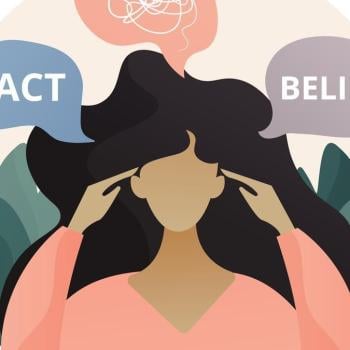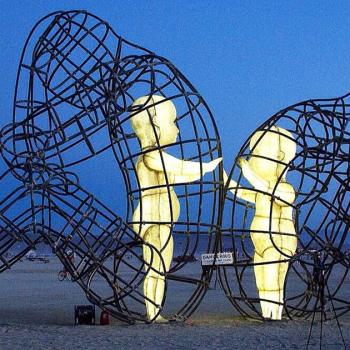
A personal reflection: I often write about the church of my upbringing, highlighting the messages I needed to unlearn later in life. This is unavoidable if I’m to tell my authentic story, and share the lessons I hope will bless others. Unlearning is often the first part of learning, just as removing shackles is the first part of freedom, so I can’t apologise for detailing the spiritual starting point in my journey. My best hope is that others will read what I’ve written, and gain insight that otherwise might take long, painful years to grasp. All my learning has come the hard way.
That said, I want to redress the balance, in case the references I make give the wrong impression about the good people of my ‘home church’. The teaching I was exposed to in my youth was passed on by decent, sincere people. These were not false teachers or spiritual miscreants; they were (and are) doing their best with what they knew.
None of us can go beyond our knowledge, in any given moment, and I look back on some of the things I’ve said with considerable chagrin. At university, I befriended a guy from my block I’ll call Mark, for the purposes of this blog. He was a lovely fellow, and we got along well, despite differences in our lifestyles. I was a clean-cut young Christian, who didn’t swear, drink or take drugs; he was an atheist, who smoked copious amounts of weed, and occasionally dabbled in LSD and magic mushrooms.
I can’t remember how we started talking about faith, but he was open to exploring, as long as we didn’t discuss it in front of the other lads. One night we stayed up late, talking in his room till the small hours, and it was clear he wanted to know more. Our secret, late-night meetups became a habit we both loved, and many wonderful conversations took place over the course of several months.
Mark decided to come out of the closet about his interest in faith, and came with me to church one Sunday morning, where he was struck by the beseeching expression of a young woman, worshipping God with tears in her eyes. He wanted to give his life to the Lord, but as we walked home he became anxious, asking me if he had to give up smoking and drinking. I hesitated before responding, unsure what to say. Certainly, that was the expectation I’d been brought up with, and I had no idea there were other ways of looking at things. None of the Christians I knew were smokers, and few drank more than the occasional pint.
I deeply regret my answer: “I suppose so.”
Mark tried his best, but it wasn’t long before he was puffing away at a joint, and drinking with the rest of the lads. He approached me, shame-faced and sad, to tell me he wasn’t capable of the Christian life (as I’d painted it), and would have to walk away.
That was the end of our late-night talks, and the friendship was never the same after that, which has remained a source of sadness for me ever since. If I’d known then what I know now, I’d have told Mark that drinking and smoking were between him and God, and nobody had the right to tell him how to live. I’d have assured him that life with God was both a relationship and a journey, and that if God ever wanted him to step away from a particular habit, it would be at a time when Mark was ready. I’d even have told him there’s nothing wrong with drinking beer, or smoking a joint, in and of itself.
Mark could have joyfully embarked on a life of faith, but instead he drifted away from happiness, considering himself a failure for being unable to respond to a God he now believed in. He became depressed, and a shadow of the person I’d first met.
I’m culpable for that. If I could return to that moment of hesitation and give a better answer, I would, but I can’t. Because of my lack of knowledge, and despite the best of intentions, I did him harm. Nothing but his forgiveness will erase that, and I hope to get the chance to ask for it, one day.
This was not the only mistake I’ve made when sharing faith, and no doubt I still make some today, but although I recognise the harm done, it would be wrong to beat myself up for past mistakes. I only had what I had, and was doing my best to hand it on. The past cannot be rewritten, and the important thing is to learn from it.
I hope this makes it easy to understand, that when I write of teachings I consider to be damaging, which were passed onto me by the church of my youth, it is without the intention to criticise. These were leaders and members of my community, my youth group leaders, my Sunday school teachers, and my friends, and they wished me nothing but the best. Even if the doctrine taught was sometimes heavy and destructive, there was also sincerity, warmth, and genuine faith on display.
In particular, I remember an old chap called Roy, who had an accident in a car park and needed help looking after his garden. They asked the youth group for volunteers, and somehow my hand ended up in the air, along with that of a boy called Steve, who used to be my friend, but we had fallen out.
Every Saturday morning, Steve and I would turn up at Roy’s house to mow his lawn, trim his hedges and weed the beds, and I had no idea how transformative the experience would be. Roy was a mischievous Scotsman with a wicked sense of humour, and he treated Steve and I as equals. He clearly enjoyed our company, and we enjoyed his.
Roy plied us with cups of tea and fancy biscuits, and we spent as much time chatting round the kitchen table as we did tending the garden. This went on for months, becoming the much-anticipated highlight of my week, as I think it was for Steve. In Roy’s gracious, inclusive company, Steve and I reconciled, putting our falling-out behind us, and we became friends once more. Even after Roy had recovered, I used to go and see him, just for fun, and as a fifteen-year-old boy, considered this septuagenarian one of my best friends.
After going to university, and being filled with the Spirit, I realised that Roy was pretty fierce in his opposition to spiritual gifts. He was against what he called a ‘second blessing’, but we agreed to disagree, and that was that. Roy held to all kinds of beliefs I now consider to be harmful – heavy, Calvinist doctrines, and cessationism, among them – but he did so with sincerity, and there is no doubt in my mind he loved God with a passion.
The last time I ever saw Roy was in a communion service, just before I went overseas to become a missionary. Communion services were times of reflection, where we sat in silence until an individual rose to their feet to either read from the Bible (perhaps with a little added commentary) or announce a hymn, which we would then sing. This was the closest my church ever got to moving in the gifts of the Spirit, because among the handful of speakers, someone might feel inspired to read out a particular verse, which can be a form of prophecy.
On this occasion, the congregation seemed to tune into something of God, and there was a tangible sense of Presence in the room. Roy rose to his feet and began to pray, saying in impassioned tones:
“I don’t care what I believe; sometimes you are just here!”
At the back of the church, I smiled, knowing that regardless of the vast gulf between our theological perspectives, Roy and I were communing with the same God. I knew exactly what he was feeling in that moment, because I was feeling it too.
Roy passed away shortly after that, while I was away at sea, so we never got to say goodbye. When I move on to glory, I will catch him up in a huge embrace and thank him for his love, friendship and acceptance, which meant the world to me as a young man, and still do today.
So you see, when I write about my ‘home church’, to address theology I believe to be harmful, I do so with care and respect in my heart for the people who were part of it. They did their best, just as I am doing their best, and at the end of the day, intentions matter more to God than being right.
In the exploration of faith, it is good that we fight for our ideas, or no progress will be made, but we needn’t fight each other. We are brothers and sisters, loved unconditionally by the same God.












